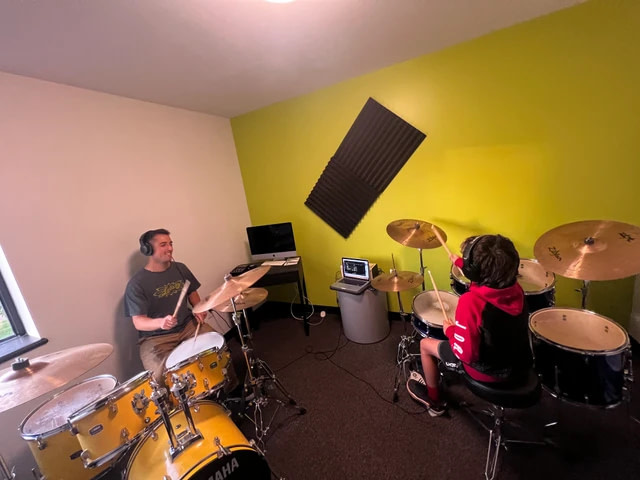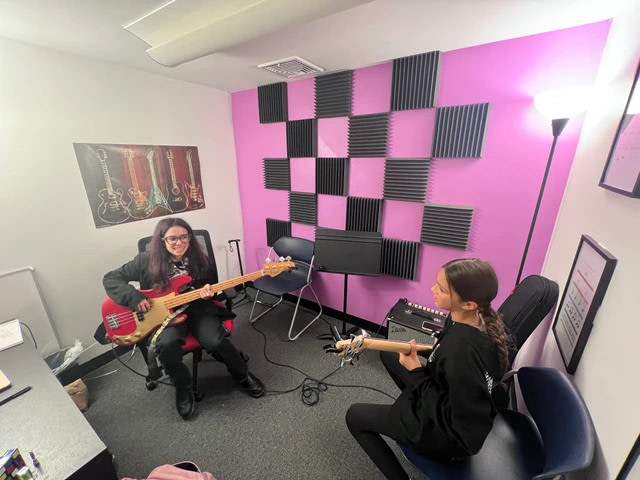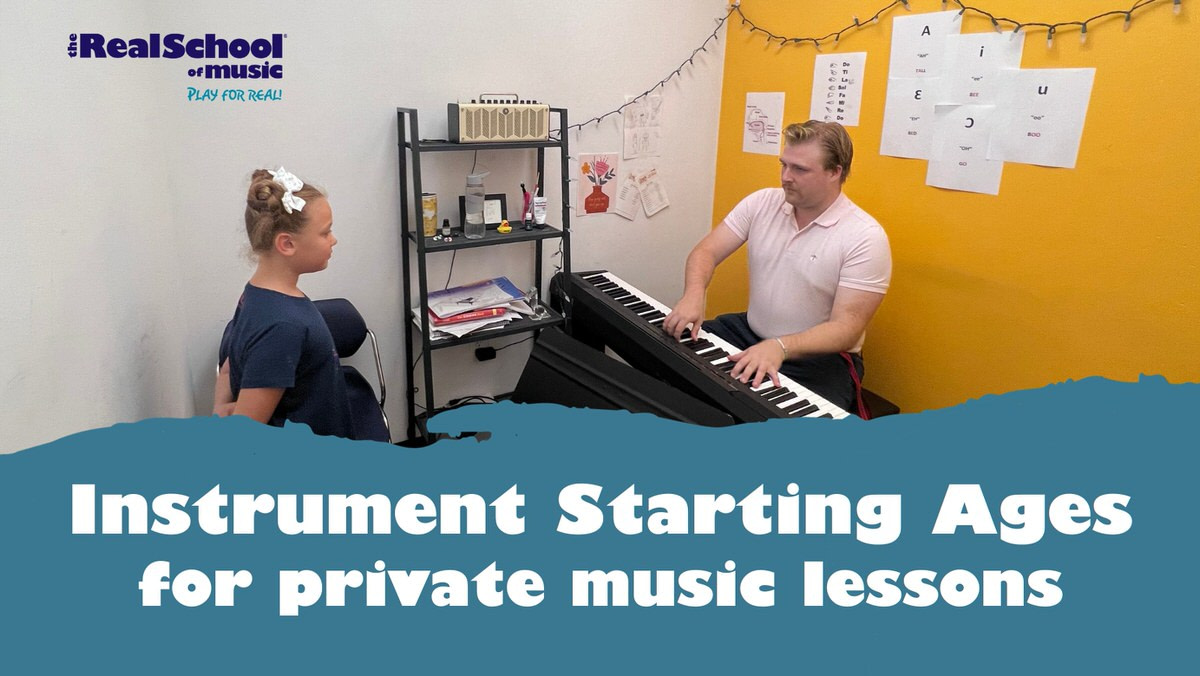One of the most common questions asked of music instructors is how young should a student start lessons in a specific instrument – and this is no easy answer! While we have some general recommendations to start from, there is absolutely flexibility based on each individual student, their lesson goals, their ability to focus for 30+ minutes, and their dedication to the instrument in and out of the lesson room. We also want to stress that it is never too late to start instrument lessons either! We recommend you discuss your student’s interests, personality, and goals when first talking about taking lessons so that we can see what works best for their unique experience.
All of that said, let’s take a look at insight from experienced private music lesson instructors at The Real School of Music to see what age they recommend starting music lessons by instrument or instrument type and why.
Brass (Trumpet, Trombone, French Horn): Ages 9+
“Instruments like trumpet, trombone, and french horn require strength in breath and the ability to hold the full sized instrument. In order to help students feel the most confident in practicing and learning their instrument, I recommend starting at age 9 or 10. By then, students find it easier to understand pushing air into the instrument and pressing the buttons for the notes to play.”
Drums & Percussion: ages 6+
“I tell parents that the typical starting age for drum lessons is 6 years old. This is when kids are typically able to listen and maintain interest in the teacher to keep lessons fun and engaging. By this point, they are most likely already in school so they are somewhat accustomed to the structure of an educational environment. There are always exceptions of course, so it never hurts to talk about your child when discussing lessons. This is also an ideal age to start incorporating how practice is necessary for growth and how music can benefit them in the future.”
“I have students as young as 6 years old all the way through their 50s and the one thing they share in common is their desire to play. No matter the age, I say if the interest is there, you should give it a try!”
Guitar & Bass: ages 7+
“I would say ages 7+ are great starting ages for guitar or bass. Generally I find that most kids under 7 have a tough time maintaining focus for their full lesson and they have some difficulty getting their small fingers to get the notes just right. This can be frustrating for them when they are trying so hard, which can be discouraging. With my younger students, we take breaks or talk about something different for a moment in the lesson to help them refocus, and we create smaller, more achievable technical goals that will help build their finger strength and confidence.
All that being said, there’s really no bad age to start. If they’re ‘too young’, we’ll play simple fun things until it clicks and I’ll keep it a fun and engaging experience for them until they start to get it. Everyone can and should experience playing their favorite songs!”
Piano: ages 6+
“For private piano lessons, I typically recommend age 6 or above for the average student. It’s important that motor skills are developed enough to move one finger at a time and press down weighted piano keys. Being able to read some words is also a good indicator of when a child will have the visual skills needed to read music notation.
With that said, I highly recommend Yamaha Group Classes for younger students. The curriculum is designed to be developmentally appropriate for younger children, taking into account their motor skills, attention span, and heightened ability to imitate and play by ear. While keyboards are a large part of the curriculum, the courses are comprehensive and include other activities like singing, ear training, music appreciation, and rhythm training.”
Violin/Viola: ages 7+
“I think age 7 is a great age to start the violin or viola. By this age, a child should be able to concentrate and learn things well both mentally and with their hands as holding down strings in the right places while multitasking with a bow that must be placed properly are key to success. It is also important to find the right teacher for younger students.”
Voice Lessons: ages 5+
“While voice lessons can start at any age, it’s better for the child to have a sense of autonomy and discipline without the presence of their parents before starting private instruction, which typically begins around the age of 5 or 6.
One of my best students started taking lessons when she was 5 years old. She and her mother were both very motivated and dedicated to showing up for the weekly lessons and participating in student showcases to expose her to singing in front of other people. She’s now 7 and sings music by Mariah Carey, Whitney Houston, and Alicia Keys. She has stolen the show at every showcase she has attended for the last two years!”
Woodwinds (Flute, Clarinet, Saxophone): ages 9+
“The best age to start a woodwind instrument would be around age 9. These particular instruments are not able to be sized down to a smaller child’s needs since that would alter the pitch of the instrument. These instruments also require using reeds and covering the keys on the instrument, something smaller hands may not be strong enough to do just yet.”


Thank you to our Real School of Music Instructors Chris, Mark, John, Ben, David, Everly, Don, and Zach for sharing their advice on ideal starting ages for music lessons by instrument! Meet all of our amazing music instructors.
Ready to schedule your FREE trial lesson?
Get ready to make music, memories, and new friends in a creative and educational environment you will love. A FREE trial lesson is designed to be a fun sneak peek into the Real School experience to see where music lessons can take you. Come as you are, and let’s hit all the right notes together!
If you’re ready to start your musical journey, book your FREE trial lesson with us today! 🌟🎶

